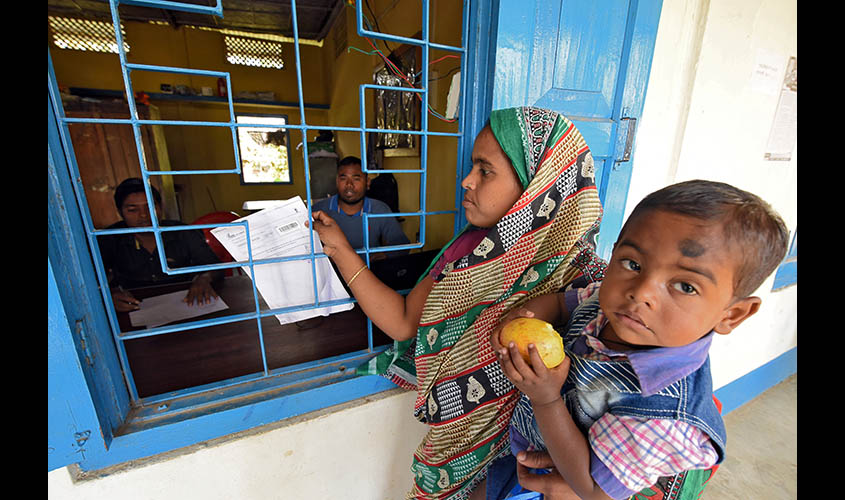All women politicians agree that a perception of ‘what can she do’ runs through the male dominated political landscape.
Women’s participation in Indian politics is not as high as that of men, impairing their socio-political growth. In a country with over 2,500 political parties, an overwhelming majority of grassroots workers are men. In many demographic pockets in the country that are inherently backward, women do not have an independent say.
Ramprasad, a BJP worker who goes to backward areas in Uttar Pradesh for campaigning, says women traditionally do not speak with strangers. They associate it with “maryada” (honour). “So, we convince family heads (mostly males) who to vote for. This influences their whole family,” he says.
Political analyst Anand Dadariya says that in backward areas, women act as proxies of men (brother, father, son and husband). “The men tell them to vote for x party or y party. And they do it. They don’t have any political ideology. They often do not even know which party symbol belongs to which political party. They are also not aware of the candidates they are voting for, such is the ignorance in these areas.”
As a result, political organisations may have lost direct links with the women voters in several such areas, and allowed a fusion of patriarchal family structure, where men dictate terms and women play an inferior role. The whole process results in a rigid social system.
The solutions to this, Dadariya says, is to give opportunity to women in politics at the grassroots. “They can connect with women who act as proxies. This can help in eliminating political illiteracy of the female electorate and give them proportionate say in democracy,” he says.
Priyanka Aggarwal, General Secretary of Mahila Pradesh Congress committee, says that women usually hesitate talking to men. “But with women, they can talk openly and connect heart-to-heart. Giving space to women at the grassroots can work both ways. It will make political parties understand women’s needs and also help women politicians grow from the grassroots.”
According to Naveed Mehmood, a Senior Resident Fellow at Vidhi Centre for Legal Policy, law and policy making in India have for long lacked a gender lens: “Women’s participation in politics, especially at the grassroots, would bring India’s laws and policies in sync with socio-political realities, thus creating a more gender-sensitive governance model.”
Women, like men, reach top political echelons either through striving from the bottom of the political ladder (by campaigning for their party) or by inheritance. But, analysts argue, when there is a squeezed space for women at the grassroots “it plays as a dissuading element for them to join politics, let alone growing up the ladder”.
Female politicians say that there is a misconception among people that if a woman goes into politics, her character is to be questioned, which stops many from joining politics.
In addition to that, the process to reach the top is not easy. All women politicians agree that a perception of “what can she do” runs through the male dominated political landscape. A woman politician says, “If women somehow are able to carve out a space for themselves, there is an embedded discrimination against them. If you have to think of appointing someone at an official position in a political party, they will favour a male. This bias reduces the existence of women.”
Mohammad Munna Khan, spokesperson for one of the national parties, said, “When any male politician assaults a woman, the message spreads. It springboards a perception that the atmosphere for women in politics is unsafe, which further results in women refusing to work in politics.”
However, despite the odds, women’s representation in politics is growing, but very slowly. Women’s presence in the Lok Sabha has increased from 5% (in the first ever election) to 14% in the recently held general elections (17th Lok Sabha), which means, from around 27 Parliamentarians to 80 in the 545-member House.

